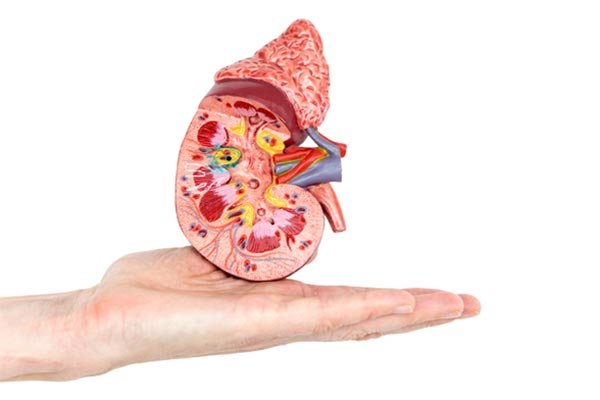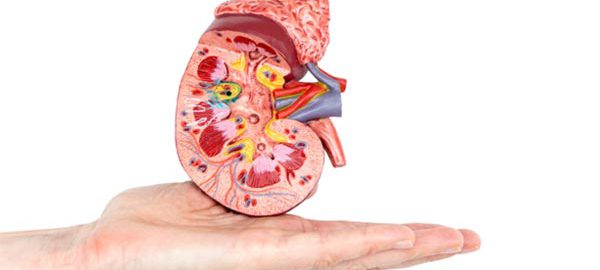More and more people are suffering from diabetes globally. The prevalence of increasing diabetes means that the prevalence of diabetic kidney disease, one of the dangerous complications that increase mortality worldwide, also increases, explains nephrologist in Delhi.
What is diabetic kidney disease?
If high blood sugar persists, it will damage small blood vessels in the kidney. This can cause the protein to escape into the urine, resulting in symptoms such as hypertension, edema, and kidney damage. Finally, these injuries lead to serious kidney disease, end-stage kidney disease. Kidney disease caused by diabetes is called diabetic kidney disease.
Why is it important to know about diabetic kidney disease?
- The worldwide prevalence of diabetes is increasing rapidly.
- Diabetic kidney disease is the most common cause of chronic kidney disease, and 40-45% of newly diagnosed patients with end-stage kidney disease are diabetic.
- Treatment of end-stage renal disease is more costly for patients in developing countries.
- Early diagnosis and treatment can prevent diabetic kidney disease. Even with chronic kidney disease, proper treatment can delay the treatment of renal replacement therapy such as dialysis or kidney transplant in Delhi for a considerable period of time.
- Management of diabetic kidney disease is more important because of the high mortality from cardiovascular disease.
Therefore, early diagnosis of diabetic kidney disease is very important in the treatment of patients, says the best nephrologist in Delhi.
How many diabetic patients lead to diabetic kidney disease?
There are two categories of diabetes, depending on which category it is likely to progress to diabetic kidney disease.
1) Type 1 diabetes-insulin-dependent diabetes mellitus
Type 1 diabetes occurs mainly in children, and insulin is essential for the treatment. Approximately 30-35% of patients are known to lead to diabetic kidney disease.
2) Type 2 diabetes – non-insulin dependent diabetes mellitus
Type 2 diabetes mellitus is predominantly in adults and is often treated without insulin in most patients. It is known that about 10-40% lead to diabetic kidney disease. Type 2 diabetes is the most common cause of chronic kidney disease in more than one of three chronic kidney disease patients, says kidney specialist in Delhi.
What type of diabetes leads to diabetic kidney disease?
Although it is difficult to predict which diabetes will lead to diabetic kidney disease, several key factors are known.
- Type 1 diabetes mellitus that occurred before the age of 20
- Unregulated blood sugar (high glycated hemoglobin)
- Uncontrolled blood pressure
- In the case of visual impairment such as diabetic retinopathy or nerve damage such as diabetic neuropathy
- Proteinuria, obesity, smoking, hyperlipidemia
When does diabetes mellitus (diabetes) develop in diabetics?
Diabetic kidney disease (sickness) takes years to develop, so it rarely develops within the first 10 years. In type 1 diabetes, soybean red mildew symptoms occur between 15 and 20 years after the onset, and if it has not progressed to kidney disease for 25 years after the onset, the likelihood of developing kidney disease is lowered, says a doctor for kidney in Delhi.
When should a diabetic patient suspect a diabetic kidney disease?
Diabetic kidney disease (sickness) can be suspected if you have any of the following symptoms.
- When foamy urine or urinary albumin/protein is present (observable early on)
- Worsening of high blood pressure or previous hypertension
- Edema of the ankle, foot or face; Decrease in urine volume or weight gain (due to the accumulation of water)
- The decrease in insulin or diabetic drug requirements
- Frequent hypoglycemia, or diabetes that has not been controlled in the past,
- Drug-free diabetes: Many people think that diabetes has been cured because of good blood-sugar control, but in fact, it can mean kidney disease. In kidney disease, the duration of action of the diabetes drug is long.
- Symptoms of chronic kidney disease at the end-stage (helplessness, fatigue, anorexia, nausea, vomiting, itching, pale, shortness of breath)
- Elevation of creatinine and urea nitrogen in the blood test
How do you diagnose diabetes (kidney disease)?
- Ideal: Diabetic patients should be tested for microalbuminuria and blood creatinine (or glomerular filtration rate) every year.
- More practical: every three months blood pressure and urine dipstick tests are done. And every year we perform a blood creatinine (or glomerular filtration rate) test.
How can I prevent diabetic kidney disease?
The following are important to prevent diabetes (kidney disease).
- Receive regular medical care from top nephrologist in Delhi.
- Blood sugar control thoroughly. It is advisable to keep the glycated haemoglobin below 7%. Maintain blood pressure below 130/80 mmHg. Antihypertensive drugs such as angiotensin-converting enzyme inhibitors and angiotensin receptor blockers are used to control blood pressure and albuminuria.
- Sugar, salt, protein and fat intake should be reduced.
- The microalbuminuria test and blood creatinine test (or glomerular filtration rate) should be performed at least once a year to determine the function of the kidneys.
- Lifestyle therapy: Regular exercise and maintain ideal body weight. Do not smoke with alcohol, and avoid indiscriminate use of drugs such as an analgesic.
How do I treat diabetes (kidney disease)?
- Thorough management of diabetes
- Proper management of blood pressure is most important in protecting the kidneys. Therefore, blood pressure should be routinely measured and maintained below 130/80 mmHg. Treatment of hypertension is known to slow the deterioration of chronic kidney disease.
- Angiotensin-converting enzyme inhibitors and angiotensin receptor blockers are antihypertensive agents that have particular advantages in diabetic patients. These antihypertensive agents have the advantage of slowing the deterioration of nephropathy and should be initiated from early nephropathy in which microalbuminuria is present for maximum benefit.
- To reduce facial or back swelling, you should administer a drug that increases urine, such as diuretics, with salt and water restriction.
- Diabetic patients with renal insufficiency have a greater risk of falling into hypoglycemia and need appropriate controls for diabetic agents. Fast-acting insulin is preferred for controlling glucose and persistent oral formulations are contraindicated. Metformin is at increased risk for lactic acidosis and should not be used in patients with plasma creatinine> 1.5 mg / dL.
- In diabetic patients with high plasma creatinine, all treatments for chronic kidney disease should be performed (listed in Chapter 12).
- Risk factors that can cause cardiovascular diseases such as smoking, lipid elevation, hyperglycemia, and hypertension should be assessed and managed.
- Patients with advanced diabetic kidney disease eventually need treatment such as dialysis or kidney transplant in Delhi.
When should a diabetic kidney patient consult a doctor?
Diabetic patients with microalbuminuria must consult the best kidney specialist in Delhi. You should consult your doctor immediately if:
- The sudden increase in body weight, sudden decrease in urine volume, worsening of the face or leg edema, or difficulty breathing
- Chest pain, aggravation of hypertension, and very fast or slow heart rate
- Severe placebo, anorexia, vomiting or pale
- Persistent fever and chills, and pain or burning fever during urination, urine or hematuria
- When there is frequent hypoglycemia or reduced demand for insulin or diabetes
- When confusion, drowsiness or convulsions of consciousness occurs


